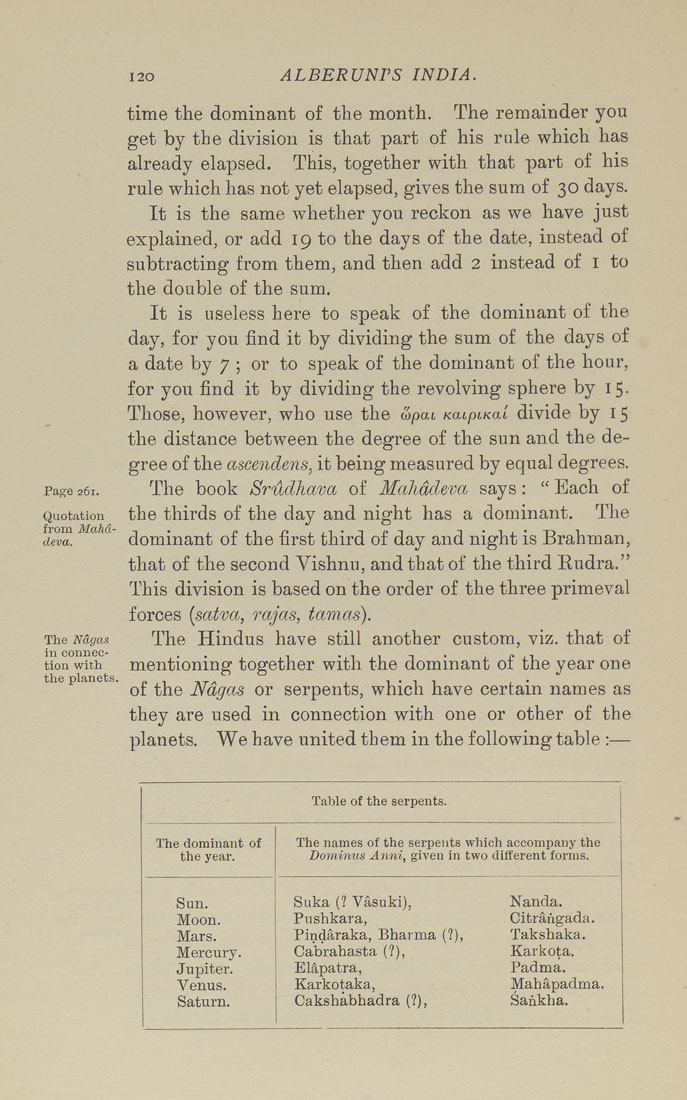ALBERUNTS INDIA.
Page 261.
Quotation
from Maha¬
deva.
The Nagas
in connec¬
tion with
the planets.
time the dominant of the month. The remainder you
get by the division is that part of his rule which has
already elapsed. This, together with that part of his
rule which has not yet elapsed, gives the sum of 30 days.
It is the same whether you reckon as we have just
explained, or add 19 to the days of the date, instead of
subtracting from them, and then add 2 instead of I to
the double of the sum.
It is useless here to speak of the dominant of the
day, for you find it by dividing the sum of the days of
a date by 7 ; or to speak of the dominant of the hour,
for you find it by dividing the revolving sphere by i5-
Those, however, who use the &pai KatptKai divide by 15
the distance between the degree of the sun and the de¬
gree of the ctscendens, it being measured by equal degrees.
The book SriXdhava of Mahadeva says : " Each of
the thirds of the day and night has a dominant. The
dominant of the first third of day and night is Brahman,
that of the second Vishnu, and that of the third Rudra."
This division is based on the order of the three primeval
forces (scttvct, rajas, tctmcts).
The Hindus have still another custom, viz. that of
mentioning together with the dominant of the year one
of the Ndgcts or serpents, which have certain names as
they are used in connection with one or other of the
planets. We have united them in the following table :—
Table of the serpents.
The dominant of
The names of the serpei
ts which accompany the
the year.
Doininus Anni, given
in two different forms.
Sun.
Suka (1 Vasuki),
Nanda.
Moon.
Pushkara,
Citrangada.
Mars.
Pindaraka, Bharma (
?), Takshaka.
Mercury.
Cabrahasta (?),
Karkota.
Jupiter.
Elapatra,
Padma.
Venus.
Karkotaka,,
Mahapadma.
Saturn.
Cakshabhadra (?),
Sahkha.
|








